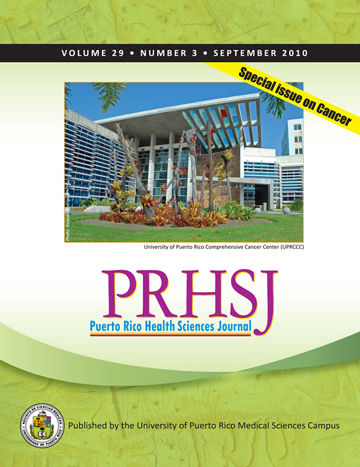Abstract
Background: The risk of cancer among Hispanics with Acquired Immune Deficiency Syndrome (AIDS) in the United States and Puerto Rico (PR) has not been well described. The purpose of this study was to determine the risk of AIDS related and non-AIDS related cancers among Hispanics with AIDS in PR. Methods: A probabilistic record linkage of the PR AIDS Surveillance Program and PR Central Cancer Registry databases was conducted. AIDS cases were grouped according to year of AIDS onset and antiretroviral therapy availability: 1987-1989 (limited availability), 1990-1995 (mono and dual therapy), and 1996-2003 (highly active antiretroviral therapy: HAART). Cancer risk was described using the standardized incidence ratios (SIR). Results: A total of 612 cancers were identified after 3 months of AIDS diagnosis: 409 (66.7%) AIDS related and 203 (33.1%) non-AIDS related. Although a decreasing trend in the risk of AIDS and non-AIDS related cancers was observed, the risk for both remained higher in the AIDS group compared to the general population in PR. Non-AIDS related cancers with higher risk during the HAART availability were: oropharyngeal, anal, liver, larynx, eye and orbit, Hodgkin lymphoma, and vaginal. Conclusion: Hispanics with AIDS in PR consistently showed a greater risk of AIDS and non-AIDS related cancers compared to the general population in PR and that has not changed over time.
Authors who publish with this journal agree to the following terms:
a. Authors retain copyright and grant the journal right of first publication with the work simultaneously licensed under a Creative Commons Attribution License that allows others to share the work with an acknowledgement of the work's authorship and initial publication in this journal.
b. Authors are able to enter into separate, additional contractual arrangements for the non-exclusive distribution of the journal's published version of the work (e.g., post it to an institutional repository or publish it in a book), with an acknowledgement of its initial publication in this journal.
c. Authors are permitted and encouraged to post their work online (e.g., in institutional repositories or on their website) prior to and during the submission process, as it can lead to productive exchanges, as well as earlier and greater citation of published work (See The Effect of Open Access).
